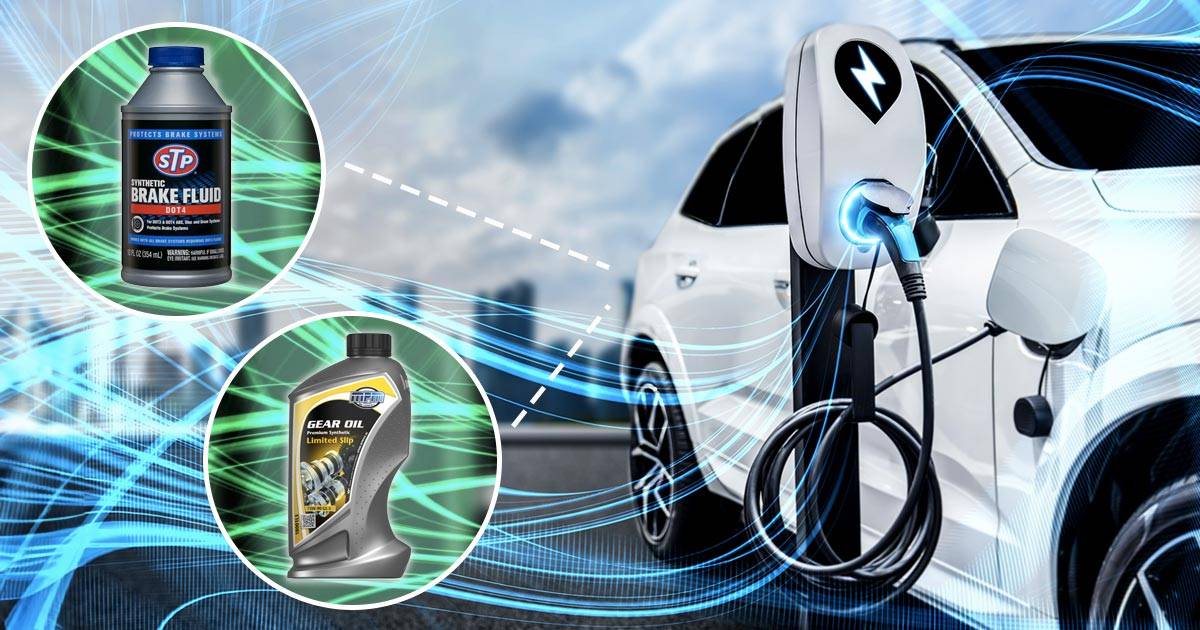Do Electric Vehicles Require Engine Oil For Lubrication?

Electric vehicles (EVs) are rapidly gaining traction on our roads and with good reason. For environmentally conscious individuals, they provide an effective and eco-friendly option in contrast to conventional gas-fueled cars. As more EVs zip down highways and through city streets, questions about their maintenance inevitably arise. One common query revolves around the necessity of engine oil, a staple in the maintenance regimen of internal combustion engine vehicles. So, do electric cars use oil for lubrication? What kind of oil, if any, do they need, and how often does it need changing? In this extensive investigation, we will dive into the realm of electric vehicle upkeep to furnish solutions to these urgent queries.
Do Electric Cars Use Oil for Lubrication?
The concise and clear response is negative; electric vehicles do not rely on engine oil for lubrication. Unlike their gasoline or diesel-powered counterparts, EVs lack internal combustion engines with numerous moving parts that necessitate constant lubrication. Traditional engines rely on motor oil to reduce friction between components such as pistons, crankshafts, valves, and camshafts. This lubrication is vital to prevent excessive wear and tear and overheating, ensuring the engine’s smooth operation and longevity.
However, electric vehicles operate on an entirely different principle. Instead of internal combustion, they rely on electric motors powered by batteries. These motors generate rotational motion through the interaction of magnetic fields, eliminating the need for the intricate and lubrication-dependent mechanisms found in conventional engines. As a result, the familiar ritual of changing engine oil becomes an obsolete concept in the realm of electric cars.
What Lubricants Do They Use?
While electric cars do away with the need for engine oil, they still require various other lubricants and fluids to operate efficiently and safely. Let’s delve deeper into these crucial fluids:
- Cooling System Fluid – Electric vehicles incorporate complex cooling systems to maintain optimal operating temperatures for their batteries and electric motors. These systems, although not reliant on oil, require periodic inspections and potential fluid replacements to maintain optimal functionality. Effective temperature control is essential for preserving battery longevity and guaranteeing secure operation..
- Gearbox Lubrication – Some electric vehicles employ a gearbox to reduce the speed of the electric motor’s rotation before it is transferred to the wheels. While this gearbox requires lubrication, the frequency of maintenance is generally lower than that of traditional engine oil changes. Routine inspections can often suffice to keep the gearbox functioning optimally.
- Brake Fluid and Other Fluids – Even though it’s not directly connected to oil alterations, electric vehicles still employ brake fluid, power steering fluid, and windshield washer fluid, all of which need regular inspections and refilling to guarantee smooth vehicle operation. These fluids play critical roles in safety and functionality.
- Battery Maintenance – The heart of an electric car is its battery pack, and its condition is paramount for overall vehicle performance and range. Contemporary electric vehicle batteries are engineered for extended durability, yet ongoing monitoring remains imperative. Assessments involving battery capacity, voltage levels, and connections are crucial to safeguard the battery’s well-being and prolonged life.
Is It Costly?
One of the primary benefits of electric vehicles lies in their reduced maintenance costs compared to internal combustion engine vehicles. Electric vehicles feature a reduced number of movable components, leading to a decreased number of parts susceptible to degradation. This translates into lower maintenance expenses over the vehicle’s lifetime. Routine services for EVs typically involve checking fluids, assessing tire conditions, and inspecting brake components, which are generally less costly than the intricate and regular oil changes needed for traditional vehicles.
However, it’s worth noting that when a significant component, such as the battery, fails, the replacement cost can be substantial. Batteries play a pivotal role in electric vehicles and can account for a substantial proportion of the vehicle’s total worth. Fortunately, modern EV batteries are designed to last for a long time, and most come with warranties that cover them for many years. This helps mitigate the potentially high cost of battery replacement, and overall, the cost of ownership for electric vehicles tends to favor them, thanks to their simpler and less frequent maintenance requirements.
How Often Should Maintenance Be?
The frequency of maintenance for electric cars varies depending on the manufacturer and model. Generally, manufacturers recommend a minor service check every 12 months or 15,000 to 20,000 miles, whichever comes first. This minor service typically involves fluid level checks, tire inspections, brake component assessments, and more.
A major service check typically takes place during the second year and may include changing the brake fluid and inspecting the cabin pollen filter. Brake fluid replacement is an essential part of this maintenance routine, even though EVs rely heavily on regenerative braking systems that put less strain on traditional brake pads.
Regular coolant system checks are essential to prevent overheating and maintain safe operating temperatures for the battery, power inverter, and cabin heater. The recommended interval for coolant replacement varies by EV model but generally falls between 50,000 and 150,000 miles.
Reduction gear oil changes, required to ensure proper lubrication of gears that reduce the speed of the electric motor’s rotation to the wheels, occur at intervals that depend on the make and model of the electric car. For example, Tesla cars typically require a reduction gear oil change approximately every 100,000 miles.
The importance of battery upkeep should not be underestimated, given that the battery serves as a vital element in an electric vehicle. Regular checks for capacity, voltage, and connections are essential to extend the battery’s life and ensure optimal vehicle range and performance.
Bottom Line
In the world of electric vehicles, the need for engine oil and traditional oil changes becomes a distant memory. Electric vehicles function on a fundamentally distinct principle, hinging on electric motors fueled by batteries, in contrast to internal combustion engines equipped with numerous mobile components. While electric cars do require other lubricants and fluids for their various systems, their maintenance needs are generally simpler and more cost-effective compared to traditional vehicles.
As the electric vehicle revolution continues to pick up speed, electric vehicle owners must familiarize themselves with the distinctive maintenance prerequisites of their cars. By adhering to the manufacturer’s advice for regular servicing, overseeing essential fluids, and maintaining a watchful eye on battery well-being, electric car proprietors can guarantee the top-notch condition of their vehicles. Embracing the shift to electric vehicles not only contributes to a greener future but also offers financial advantages in terms of lower maintenance costs and simplified servicing.


